Julius Alimakori’s Journey to Climate Resilience
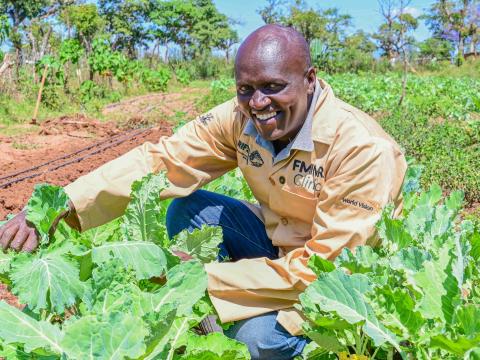
Julius Alimakori, a lead farmer from Ywalateke in West Pokot County, has steadily transformed his life—and his community—through climate-resilient farming. As the sole provider for his children and dependents, Julius once struggled with poverty, hunger, and unpredictable harvests. His story mirrors that of nearly 21 million children globally impacted by climate-induced poverty.
Residing in a drought-prone region, Julius relied on maize farming, leaving his land idle and vulnerable to erosion. His annual income of 5,000 KES (approximately $39) from maize sales barely sustained his family. Today, with support from World Vision’s Central Rift Farmer Managed Natural Regeneration Scale-Up Project (CRIFSUP), Julius has embraced Farmer Managed Natural Regeneration (FMNR) and Climate-Smart Agriculture (CSA), creating a diversified, resilient farming system.
“I used to sell livestock to pay school fees,” Julius recalls. “Now, I earn steadily and haven’t bought vegetables in two years. World Vision’s training made me drought-resilient.”
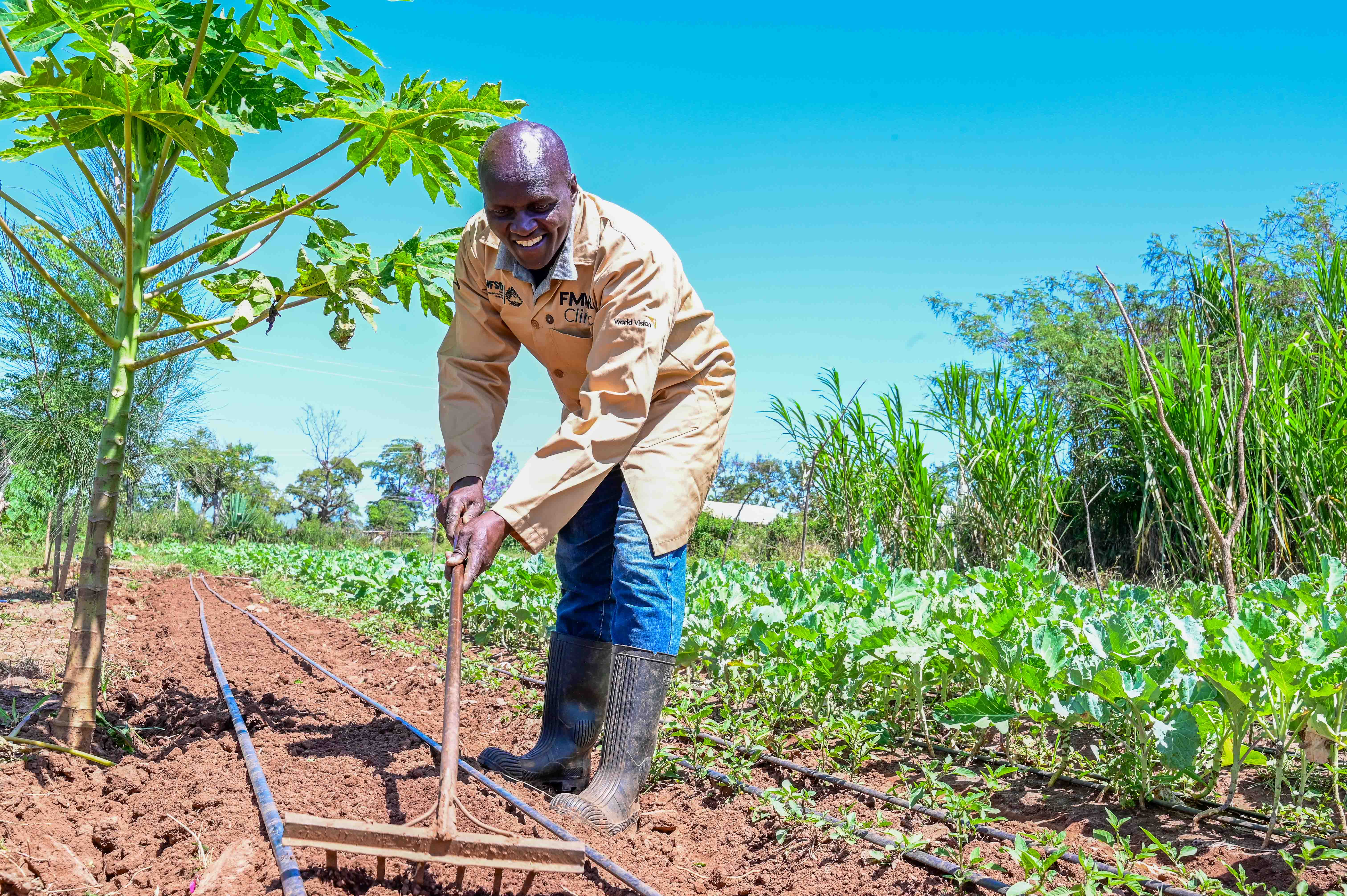
Julius’s 5-acre FMNR plot, once degraded, now produces firewood, fodder, and nutrient-rich grass. His adoption of CSA techniques has boosted his monthly income to 8,000 KES ($60), ensuring food security and steady earnings.
A pivotal moment came during an exchange visit to Baringo County, where he met Nancy, an FMNR champion. Inspired by her farm pond, Julius attempted to build his own but faced challenges with water drainage. World Vision stepped in, constructing a 250,000-litre farm pond equipped with a silt trap, solar-powered pump, 5,000-litre tank, and drip irrigation system.
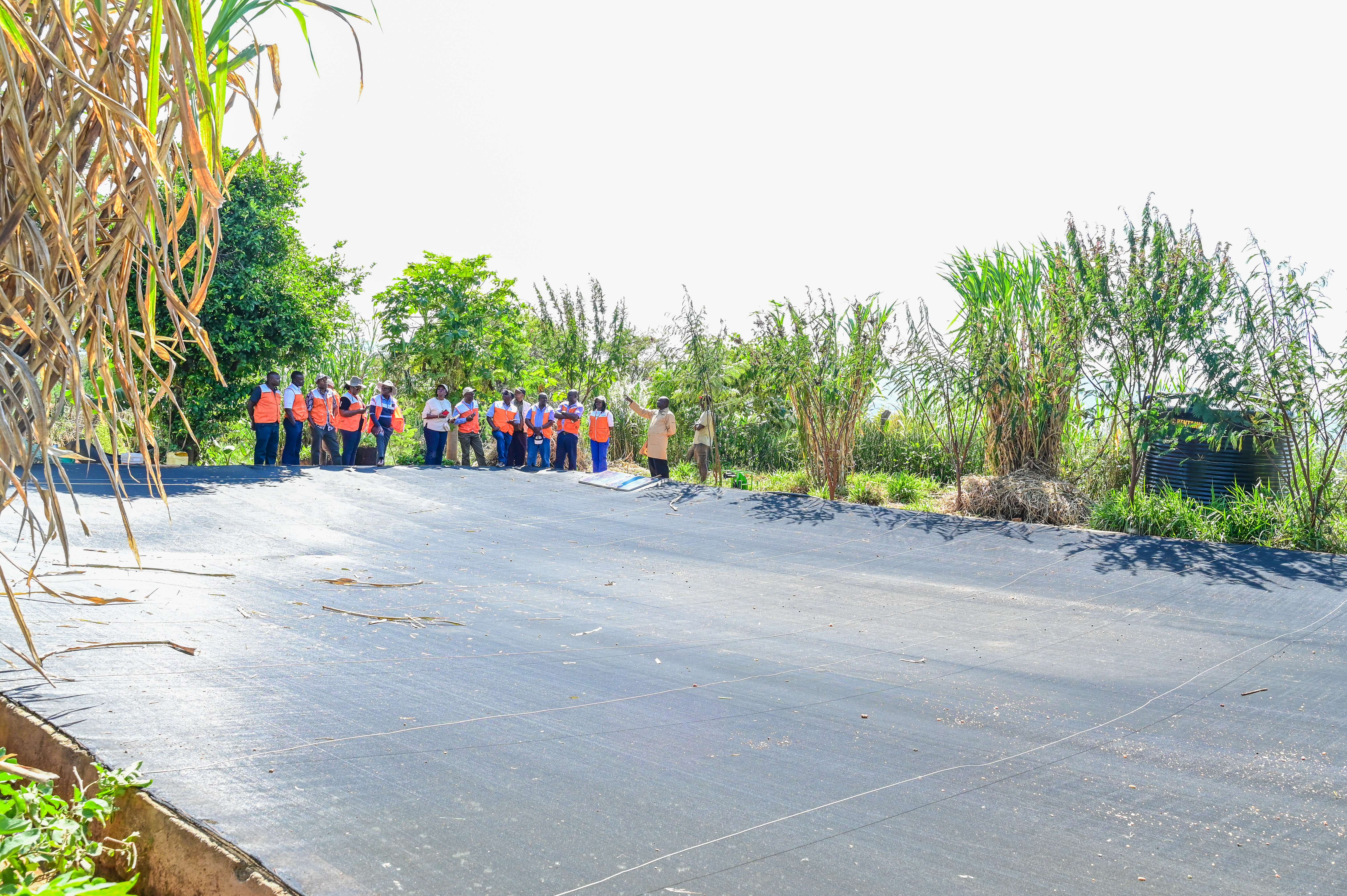
The system captures surface runoff, prevents erosion, and provides year-round water access. Julius now grows drought-resistant crops like sweet potatoes, cassava, oranges, avocados, and indigenous vegetables. “These crops thrive even in dry seasons,” he says.
Julius’s farm extends beyond crops. He rears dairy cows fed on nutrient-rich fodder like brachiaria and calliandra. Milk production has surged from 3 to 10 litres daily, earning him 800 KES ($6) per day. Neighbours flock to his farm to buy vegetables, seedlings, and fruit trees—including 600 maradol papaya seedlings sold for 18,000 KES ($140) in 2024.
“My farm is a resource for the community,” Julius explains. “I sell seedlings and advise farmers on sustainable practices.”
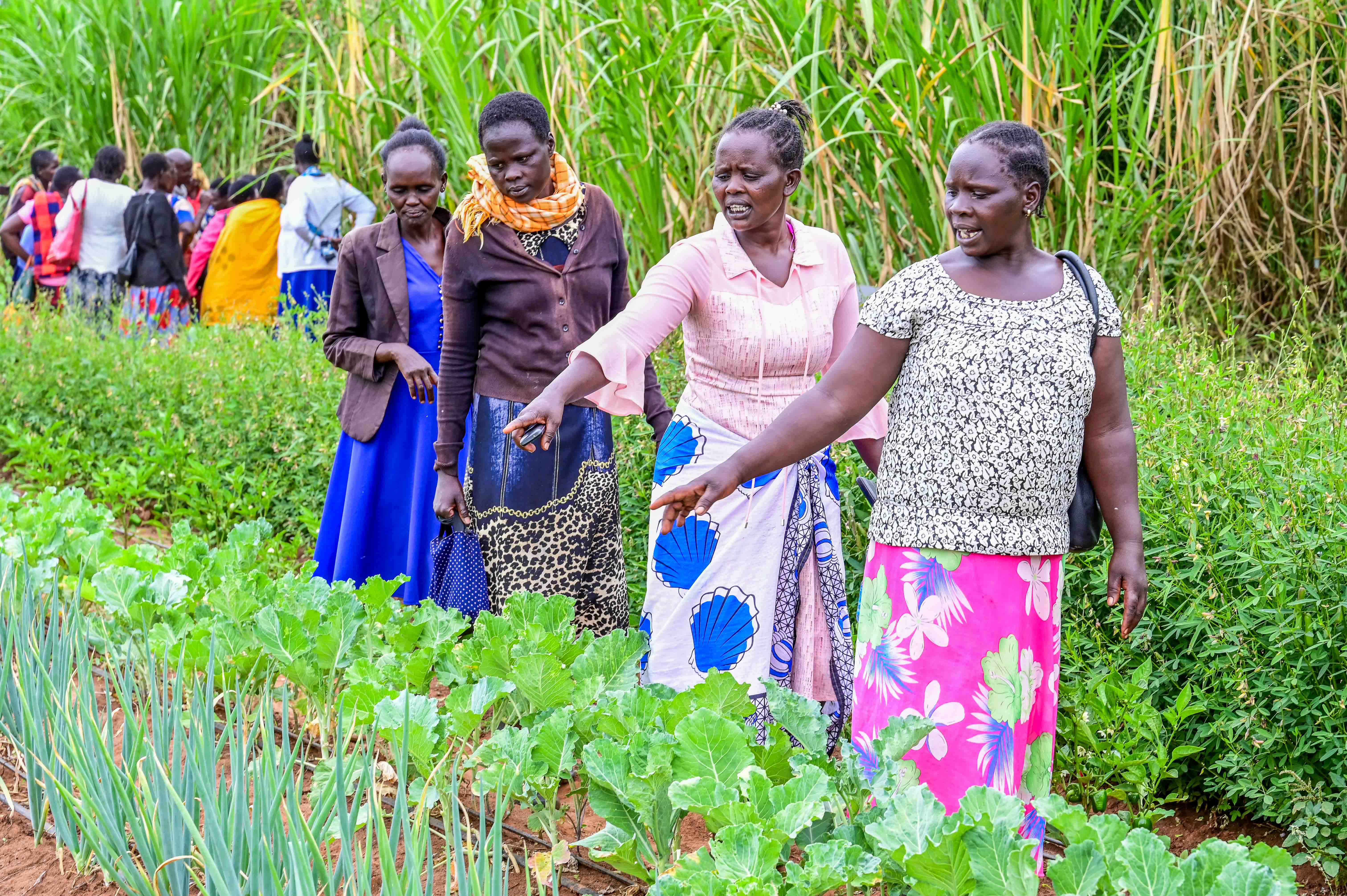
Julius urges farmers in arid regions to adopt water harvesting and CSA: “Protect the environment, and food security follows.” Supported by CRIFSUP and funded by the Australian NGO Cooperation Program (ANCP), he exemplifies how knowledge and mindset shifts can transform livelihoods.
“The project first empowered our minds,” Julius emphasises. “With shared vision, sustainability becomes achievable.”
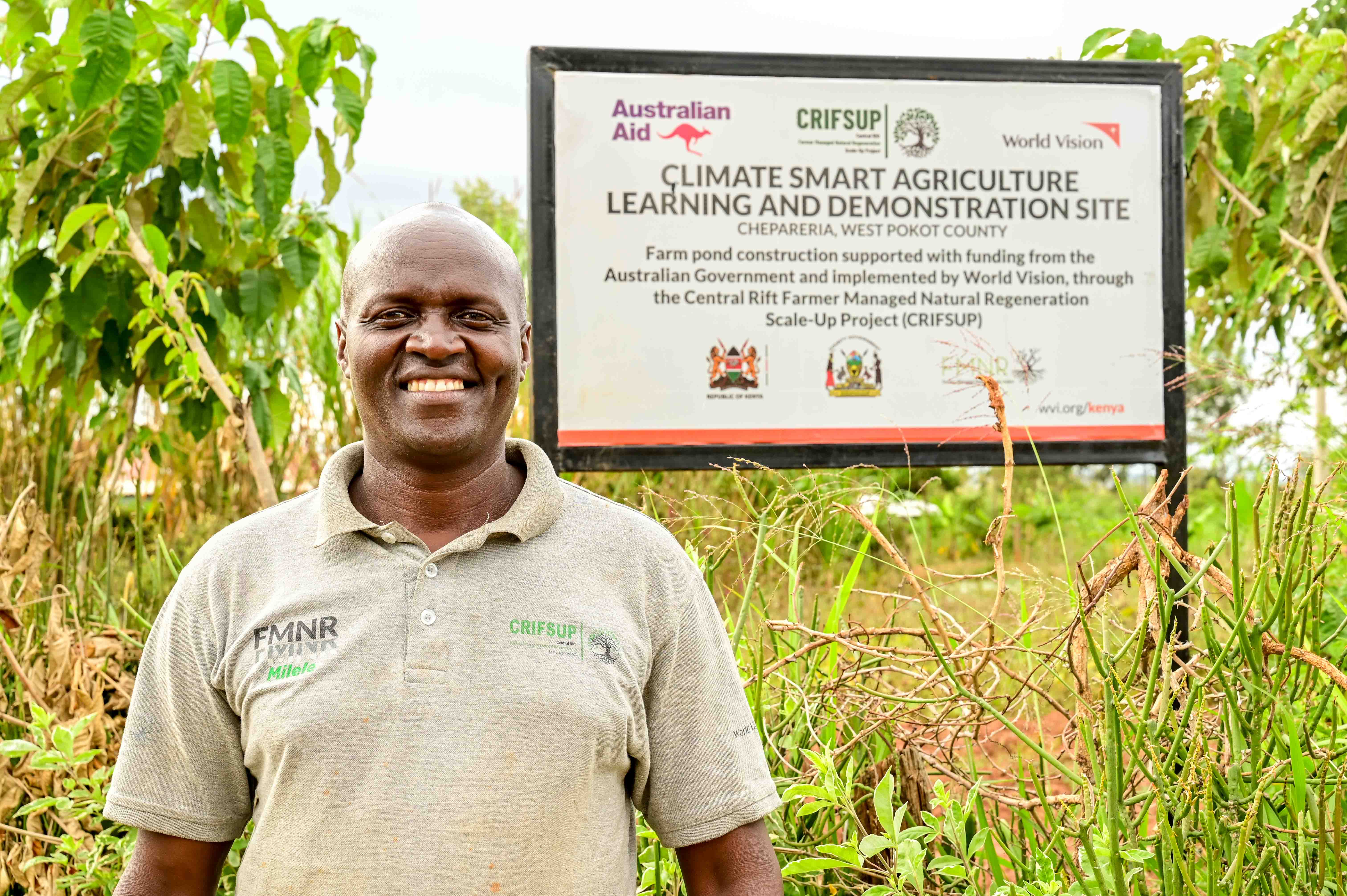
Looking ahead, Julius aims to expand his crop variety and inspire neighbours to adopt resilience-building practices. His journey proves that sustainable farming can combat climate change, reduce poverty, and foster community resilience.
By Hellen Owuor, Communications Specialist (CRIFSUP), World Vision Kenya